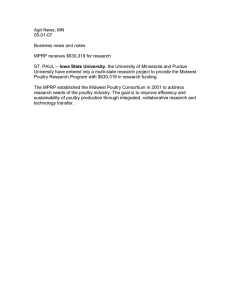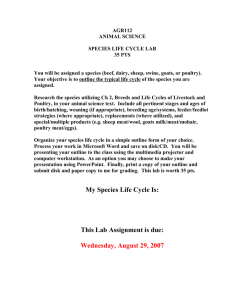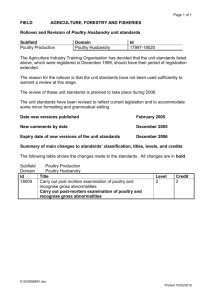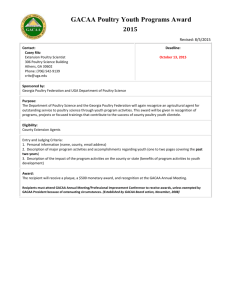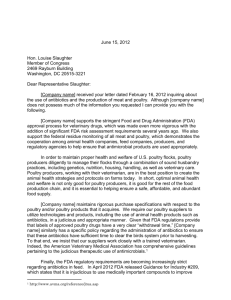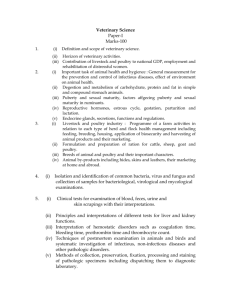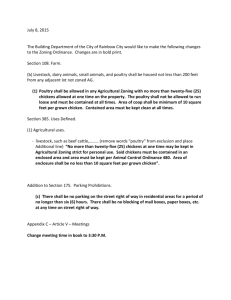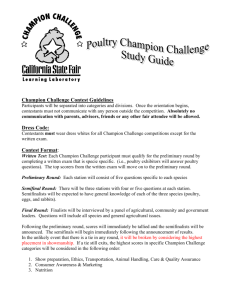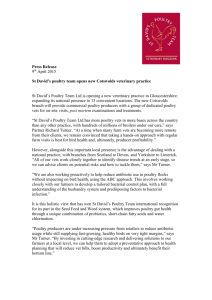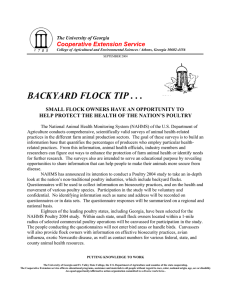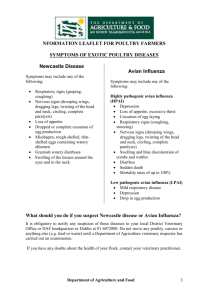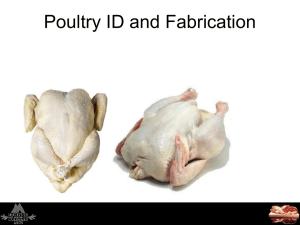Pullorum- Typhoid Control Program
advertisement
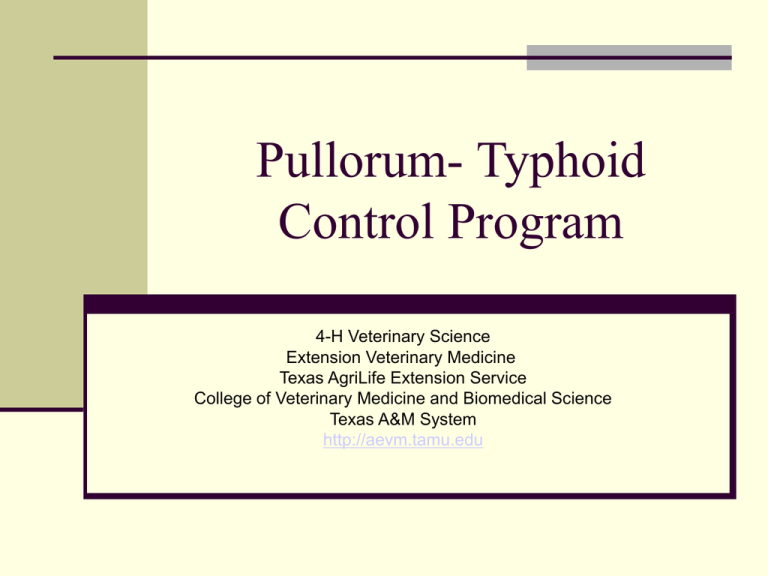
Pullorum- Typhoid Control Program 4-H Veterinary Science Extension Veterinary Medicine Texas AgriLife Extension Service College of Veterinary Medicine and Biomedical Science Texas A&M System http://aevm.tamu.edu Objectives Discuss the decrease in the prevalence of pullorum and typhoid in poultry Understand that health regulations prevent the spread of disease Primarily Chickens and Turkeys Pullorum disease Salmonella pullorum Infectious to chickens and turkeys Fowl Typhoid Salmonella gallinarum Infectious to poultry Background information Bacterial diseases No vaccine High mortality Almost eradicated Transmission Spreads to day-old chicks by infected breeders through the hatching eggs Highly transmissible National Poultry Improvement Plan (NPIP) Voluntary state-federal cooperative testing and certification program Effective 1935 USDA Improve poultry, products, and hatcheries New technology Sale and Movement of Poultry Interstate and International Movement Hatching eggs and poultry originate from flocks participating in the NPIP Public exhibition Found free of infection, or originate form certified flocks Sale or trade All breeders register with state PullorumTyphoid Program Office
